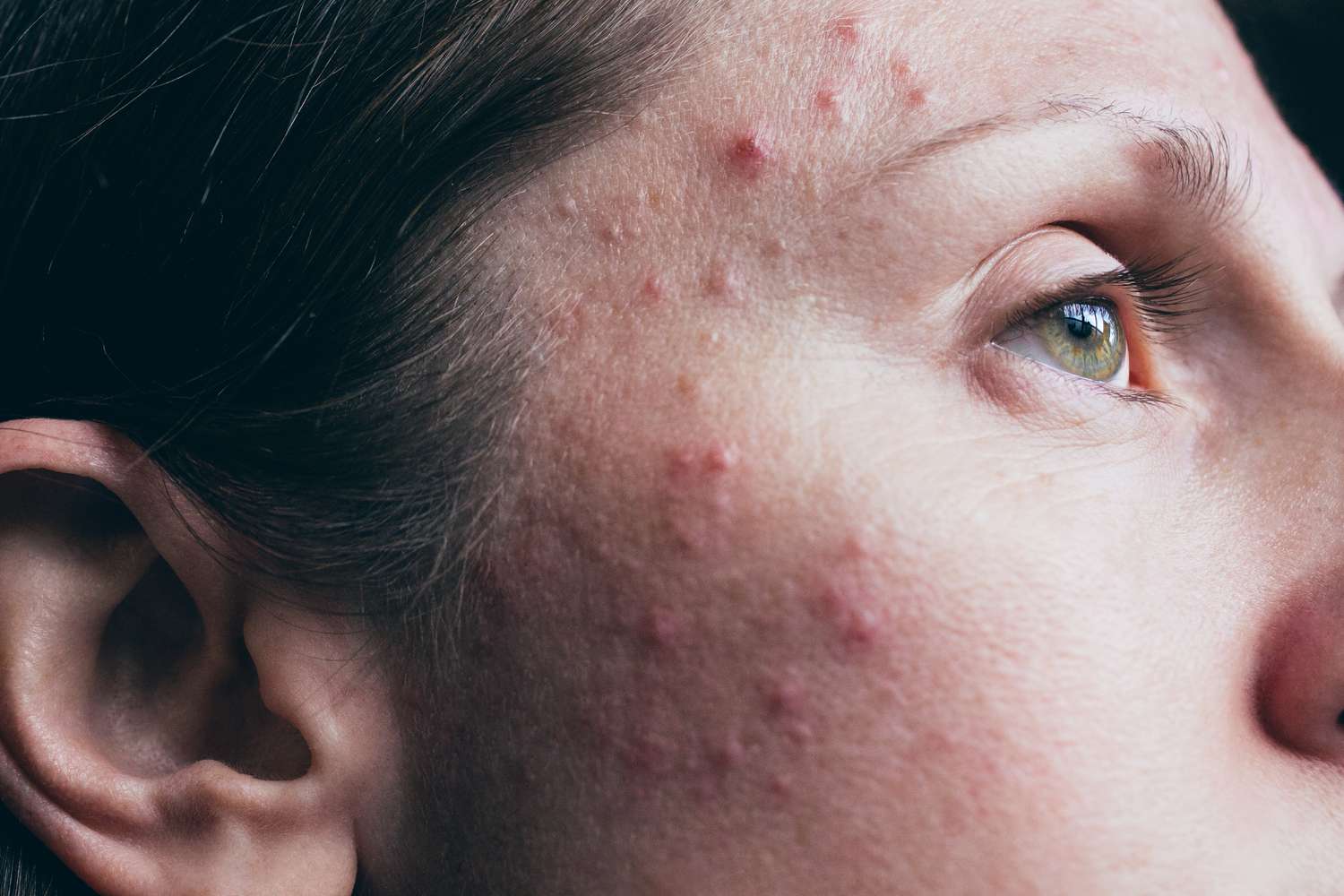
Acne—a word that sends shivers down the spine of teenagers and adults alike. But what exactly is it? Acne is a skin condition where hair follicles become clogged with oil and dead skin cells, leading to pimples, blackheads, and sometimes cysts. It's not just a teenage problem; adults can suffer too. Did you know that nearly 85% of people between ages 12 and 24 experience at least minor acne? Hormones, diet, stress, and even genetics play a role. Understanding acne can help manage it better. From myths about chocolate causing breakouts to the effectiveness of various treatments, there's a lot to learn. Ready to clear up the confusion? Let's dive in!
What is Acne?
Acne is a common skin condition that affects millions worldwide. It occurs when hair follicles become clogged with oil and dead skin cells. Here are some interesting facts about acne:
- Acne is the most common skin condition in the United States, affecting up to 50 million people annually.
- It typically appears on the face, forehead, chest, upper back, and shoulders.
- Acne can occur at any age but is most common among teenagers.
- Hormonal changes during puberty are a significant cause of acne.
- Genetics play a role in determining who gets acne.
- Stress can worsen acne by causing the body to produce more hormones like cortisol.
- Certain medications, including corticosteroids and lithium, can trigger acne.
- Diet may influence acne, with high-glycemic foods and dairy products being potential culprits.
- Acne is not caused by dirty skin; excessive washing can actually irritate the skin and worsen the condition.
- There are different types of acne, including whiteheads, blackheads, papules, pustules, nodules, and cysts.
Types of Acne
Understanding the different types of acne can help in identifying the best treatment options. Here are some facts about the various forms of acne:
- Whiteheads are closed clogged pores that appear as small, white bumps on the skin.
- Blackheads are open clogged pores that turn black due to oxidation.
- Papules are small, red, raised bumps caused by inflamed or infected hair follicles.
- Pustules are similar to papules but contain pus at their tips.
- Nodules are large, painful lumps beneath the skin's surface.
- Cysts are deep, painful, pus-filled lumps that can cause scarring.
- Acne mechanica is caused by friction, heat, and pressure on the skin, often seen in athletes.
- Acne fulminans is a severe form of acne that can cause fever and joint pain.
- Acne conglobata is a rare but severe form of acne that involves interconnected nodules and cysts.
- Pyoderma faciale is a severe form of acne that affects only women, usually between the ages of 20 and 40.
Causes of Acne
Acne can be triggered by various factors. Here are some insights into what causes acne:
- Overproduction of oil (sebum) by the skin's oil glands can lead to acne.
- Dead skin cells that do not shed properly can clog hair follicles.
- Bacteria called Propionibacterium acnes can contribute to acne development.
- Hormonal changes during puberty, menstruation, pregnancy, and menopause can trigger acne.
- Certain cosmetics and skincare products can clog pores and cause acne.
- High humidity and sweating can exacerbate acne.
- Picking or squeezing pimples can lead to more severe acne and scarring.
- Wearing tight clothing or headgear can cause acne by trapping sweat and oil.
- Smoking has been linked to an increased risk of acne.
- Lack of sleep and poor sleep quality can worsen acne.
Myths About Acne
There are many misconceptions about acne. Let's debunk some common myths:
- Acne is not caused by eating chocolate or greasy foods.
- Sun exposure does not cure acne; it can actually worsen it by causing skin damage.
- Acne is not contagious; you cannot catch it from someone else.
- Only teenagers get acne; adults can suffer from it too.
- Popping pimples does not make them go away faster; it can lead to scarring and infection.
- Acne is not caused by poor hygiene; over-washing can irritate the skin.
- Toothpaste is not an effective treatment for acne; it can irritate the skin.
- Tanning beds do not help acne; they increase the risk of skin cancer.
- Home remedies like lemon juice and baking soda can harm the skin and worsen acne.
- Acne is not just a cosmetic issue; it can affect mental health and self-esteem.
Treatments for Acne
Various treatments are available to manage and reduce acne. Here are some facts about acne treatments:
- Over-the-counter treatments often contain benzoyl peroxide, salicylic acid, or alpha hydroxy acids.
- Prescription medications include topical retinoids, antibiotics, and oral contraceptives.
- Isotretinoin is a powerful oral medication used for severe acne but has significant side effects.
- Laser and light therapies can reduce acne by targeting bacteria and reducing oil production.
- Chemical peels and microdermabrasion can help improve acne and acne scars.
- Corticosteroid injections can reduce inflammation and pain in severe acne lesions.
- Tea tree oil has antimicrobial properties that can help reduce acne.
- Zinc supplements may help reduce inflammation and acne severity.
- Probiotics can improve gut health and potentially reduce acne.
- Consistent skincare routines, including gentle cleansing and moisturizing, are essential for managing acne.
Acne and Mental Health
Acne can have a significant impact on mental health and well-being. Here are some facts about the psychological effects of acne:
- Acne can lead to low self-esteem and body image issues.
- People with acne are at a higher risk of developing depression and anxiety.
- Social withdrawal and isolation are common among those with severe acne.
- Bullying and teasing about acne can have long-lasting psychological effects.
- Acne can affect job prospects and professional opportunities due to perceived appearance.
- Support groups and counseling can help individuals cope with the emotional impact of acne.
- Cognitive-behavioral therapy (CBT) can be effective in addressing acne-related anxiety and depression.
- Mindfulness and stress-reduction techniques can help manage acne by reducing stress levels.
- Positive self-talk and self-compassion can improve mental well-being for those with acne.
- Seeking professional help for both acne and mental health is crucial for overall well-being.
Final Thoughts on Acne Facts
Acne affects millions worldwide, and understanding its causes, treatments, and myths can help manage it better. From hormonal changes to diet, many factors contribute to breakouts. Knowing that stress and certain foods might trigger acne can guide lifestyle choices. Treatments range from over-the-counter products to prescription medications, and sometimes, natural remedies work wonders. Myths like "only teenagers get acne" or "chocolate causes acne" need debunking. Remember, everyone's skin is unique, so what works for one person might not work for another. Consulting a dermatologist can provide personalized advice. Staying informed and patient is key to finding the right solution. Acne might be a common issue, but with the right knowledge, it doesn't have to control your life.
Was this page helpful?
Our commitment to delivering trustworthy and engaging content is at the heart of what we do. Each fact on our site is contributed by real users like you, bringing a wealth of diverse insights and information. To ensure the highest standards of accuracy and reliability, our dedicated editors meticulously review each submission. This process guarantees that the facts we share are not only fascinating but also credible. Trust in our commitment to quality and authenticity as you explore and learn with us.


